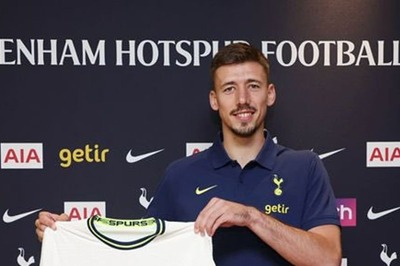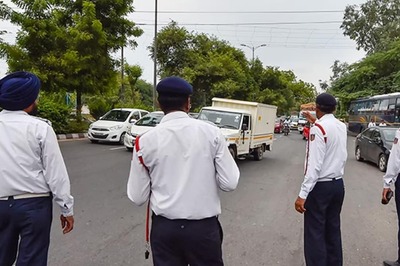
views
New Delhi: Pulling up telecom operators for frequent call drops, government said they are not making serious efforts to resolve the menace even as the companies warned of worsening of services unless a nation-wide policy is put in place for easy erection of mobile towers.
With the Department of Telecommunications (DoT) mulling action against mobile operators for call drops, all telcos held a joint press conference and sought a uniform tower policy for the whole country.
The operators, including Bharti Airtel, Vodafone and Idea Cellular, also blamed several challenges like sealing orders by local bodies, power supply issues and difficulties in getting clearances for installing sites, for call drops.
However, Telecom Secretary Rakesh Garg rejected the telecom operators' claims over call drops.
"There is no linkage between call drops and tower policy. There was no policy earlier but call drops did not happen. The problem has arisen in the last seven months. They have to find a solution within the existing norms," Garg said after meeting telecom operators on call drop issue.
He added operators need to invest in infrastructure and optimise their networks.
Sources said during the meeting, the secretary told operators that no serious efforts were being made to bring about a perceptible change.
"This is your call, you have to find a solution, we can't give you a solution," the secretary said.
He further said India has a federal structure and you have to give powers to local bodies. "Whatever the operators are demanding cannot be done by the government".
"We need a uniform national tower policy which can be implemented nationally and not just guidelines," Idea Cellular MD Himanshu Kapania said.
The operators said that about 7,000-10,000 sites are locked or shut down across major cities like Delhi, Mumbai, Chandigarh, Bengaluru, Hyderabad, Patna and Jaipur due to various reasons, including sealing orders by local bodies without prior notice.
On likelihood of call drops worsening further going forward, Vodafone India MD & CEO Sunil Sood said, "If you don't get a tower policy, yes, it will."
Sood said Telecom Minister Ravi Shankar Prasad has already come out in favour of the industry for installing more sites and also allayed fears with regard to radiation threat.
"Unless more towers come, problem of call drops and other issues faced by the customers always happen," he said.
When asked about the possible punitive action by the government over call drops, Sood said government has not given any such statement.
When referred to Telecom Minister and telecom secretary's statements over the issue, he said "government is more than one person".
Telecom operators demanded that telecom services and infrastructure be declared as essential services and they should be allowed to install towers on government buildings.
They also sought additional spectrum and harmonisation of airwaves to improve capacity.
Bharti Airtel (India & South Asia) MD & CEO Gopal Vittal said the operators have made massive investments in the sector to provide services and the industry is not going told shy away for making further investments.
Regarding installation of towers on government buildings, the secretary told operators that steps have been already been initiated for setting up of towers on such buildings and suggested telcos to sit together to find an early solution to the problem.
On harmonisation of spectrum, Garg said government will do efforts to find a solution.
"We asked them to find a solution. They have to pay attention to optimisation, invest more in networks. The operators have assured to improve services in a time-bound manner," the secretary said.
The secretary said there was redistribution of spectrum after the March auction and some operators have now less spectrum in 900 MHz band and more in 1800 MHz.
Now the operators need to invest more in 1800 MHz for GSM, but due to changing technologies they are not investing.
After one or two years, there will be less demand for GSM and more people will come on LTE, so the operators have allocated more spectrum for LTE (4G) where customers are very few as on now and which is causing call drops, the secretary added.
A recent report by TRAI said most of telecom operators in Delhi and Mumbai were not meeting the prescribed standards regarding call drops.
Industry average of call drop incidents at the end of January-March 2015 period was 12.5 per cent, compared to 6.01 per cent at the end of March 2014 on 2G networks.
The industry cited several challenges being faced during installation of sites due to different reasons including state bodies' actions against towers without prior notices, restrictions by municipalities, sealing orders, power supply issues and difficulties in getting clearances for installing sites.
When asked about giving compensation to customers against dropped calls, Vodafone's Sood said pricing decisions are taken by individual operators. "Lets understand customers will choose which operator they like the best and they are free to choose so. Pricing decisions are individual operator discussions," he added.
The telecom industry has seen investments worth around Rs 7.50 lakh crore in the last 20 years. In the spectrum auction held in March this year, all telecom operators committed a total of Rs 1.09 lakh crore.
"In 2014-15 alone, the industry committed Rs 1,34,000 crore towards development of networks. Additionally, Rs 24,000 crore has been spent by incumbent operators on capital equipment in 2014-15," telcos said.
The industry said it has also been engaging with various state governments and local bodies on alignment of state policies with the Department of Telecom's advisory on telecom infrastructure installation.
The telcos said various governments and municipal corporations are requested to provide permissions for site installation on government buildings and supportive and affordable Right of Way (RoW) for fibre.




















Comments
0 comment